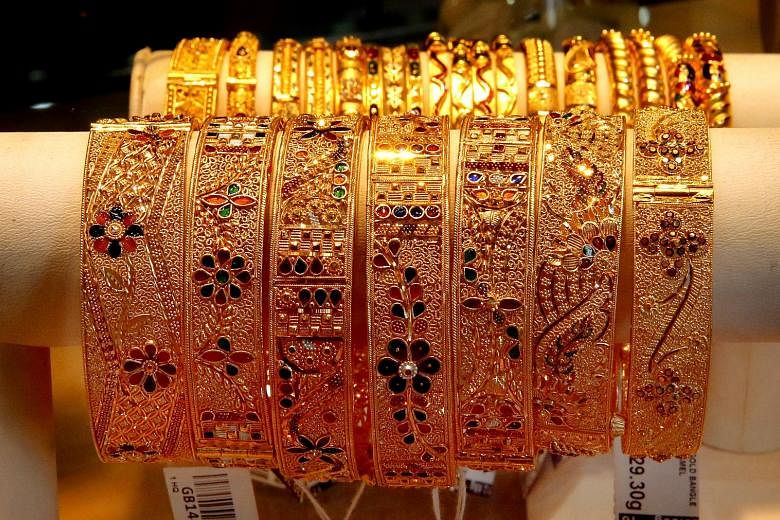The process held every day to benchmark the gold prices in London for traders across the world puts Singapore and the region at a disadvantage, but that could soon change and potentially transform bullion trading here.
The issue for the region is that prices are set by auctions held twice a day in London, which is the world's largest gold trading market, with annual turnover of US$5 trillion (S$7 trillion).
The AM auction, as it is called, is held in the morning, around 5pm Singapore time, while the PM auction, held in the afternoon, caters to traders in the United States. By then, it is around 10pm in Singapore.
"This means Asian traders have no choice but to wait for overnight settlement, an inefficient process that's also exposing traders to currency risks," said Singapore Bullion Market Association (SBMA) chief executive Albert Cheng.
A solution, one being assessed by the SBMA and the London Bullion Market Association (LBMA), is to hold an earlier auction in London to set "pre-AM" prices at around 2pm Singapore time. This would give traders in this time zone a price so that they can settle trades more effectively in what is now a bullish gold-trading market in Asia.
Mr Cheng told The Straits Times: "With the pre-AM gold price, we can plug a market gap that covers traders from the Asia-Pacific all the way to India, and users will bear only intra-day risks.
"Singapore is building itself into a metal trading hub, so the market ecosystem needs to be upgraded. With the pre-AM benchmark in place, ideally more trading firms will be willing to set up shop here."
The SBMA will help gauge interest among its clients and 35 members in the gold trading industry, including Singapore Exchange Derivatives Trading, Standard Chartered Bank and UOB Bullion and Futures. Mr Cheng said the pre-AM benchmark may be launched early next year if the findings are encouraging.
The feasibility study was announced during a precious-metals conference held by the LBMA and the London Platinum and Palladium Market at Shangri-La Hotel yesterday. It will be supported by International Enterprise Singapore.
Minister for Trade and Industry (Trade) Lim Hng Kiang told the conference that Asia accounted for around two-thirds of global gold demand last year. "Given Asia's growing importance as a source of demand for gold, it has become increasingly paramount for gold prices to be set in Asian business hours, allowing traders to reduce their exposure to intra-day price volatility and overnight foreign-exchange risk."
Physical gold movement arranged from Singapore jumped 65 per cent last year, SBMA data showed.
But some market analysts are unsure how a price benchmark in the Singapore time zone would change trading patterns. "India hasn't had many issues trading during London hours and China is pretty much a closed market with its own benchmark," a trading analyst said, referring to a yuan-denominated gold price benchmark launched in April.
The Singapore Exchange launched the Singapore Kilobar Gold Contract in October 2014 to create an Asia-based physical gold benchmark, but it has been poorly received, with no contract recorded last month.
Meanwhile, the LBMA announced at yesterday's conference that the Intercontinental Exchange will start a London gold futures contract in the US in February next year. This may come ahead of a move by the London Metal Exchange to start a rival London gold futures exchange in the first half of next year.


